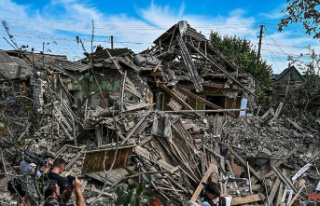Even under the impression of an impending gas shortage in the coming autumn and winter, more and more households in Germany are having heat pumps installed; sales of gas heaters, on the other hand, are declining significantly. The problem: extreme delivery difficulties with the heat pump.
According to a media report, heat pumps are increasingly replacing gas heating in Germany. The "Handelsblatt" reported, citing figures from the Federal Association of the German Heating Industry (BDH), that heating engineers had delivered 25 percent more heat pumps in the first half of this year than in the same period last year. This increases the heat pump's market share in the new heating business from 17 to 21 percent.
A calculation by the “Handelsblatt” from the figures also shows that sales of gas heaters fell by ten percent in the second quarter of 2022.
However, according to the Central Association for Sanitary, Heating and Air Conditioning (ZVSHK), there is currently no product group with such major delivery problems as with heat pumps, the newspaper reports. A survey by the ZVSHK shows that 94 percent of the guild companies are currently reporting delivery problems on the part of the wholesaler or manufacturer. At the beginning of the corona pandemic, it was only 31 percent.
"Our companies could currently install any heat pump if they had any," said ZVSHK spokesman Frank Ebisch on Thursday. "If you order a heat pump today, you can expect it to be installed in the spring of next year at the earliest," explained Ebisch. The German manufacturers are currently expanding their production lines. "But they can't deliver at the moment."
The problem has therefore worsened significantly over the past two years: At the beginning of the pandemic, in March 2020, only 31.4 percent of sanitary companies reported delivery problems. There is currently a high demand not only for heat pumps, but also for boilers and radiators as well as for control and regulation technology.
The curbing of Russian gas supplies has raised fears of a severe energy crisis in the autumn and winter. This is one of the reasons why the federal government decided at the end of July to make changes to state subsidies for energy efficiency in the building sector. The building sector is the most important item in the climate and transformation fund. According to the federal government, around 16.9 billion euros will be available in 2023 and a total of 56.2 billion euros by 2026.
The majority of this is to be used for renovations, only a small part for new buildings. "The effect on energy saving and climate protection is around 4.5 times higher in energy-efficient building renovation than in a new building," explained Economics Minister Robert Habeck from the Greens. For complete renovations, a maximum subsidy rate of 45 percent now applies to applications received since July 28. Before it was 50 percent.
Reduced subsidy rates will apply from August 15 for individual measures such as the installation of a heat pump. "In the future, the individual will receive a little less funding than before, but many people can benefit from the funding programs," explained Habeck.












